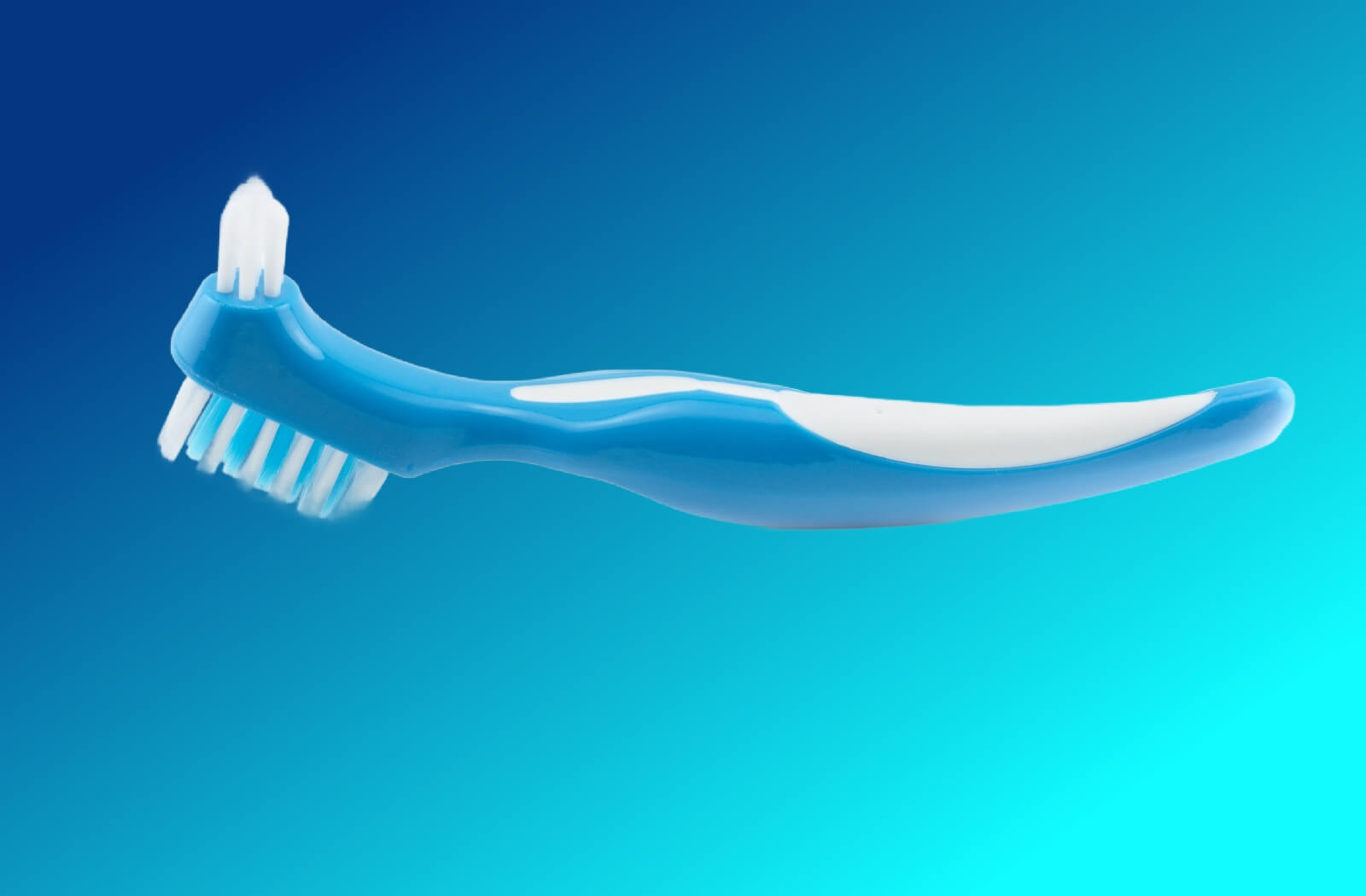How to Choose a Denture Brush

Caring for your dentures is just as important as caring for your natural teeth. Proper maintenance not only extends your dentures’ lifespan, but it also supports your overall oral health. With the right tools and routine, you can keep your smile shining bright.
One important tool for a denture care routine is the denture brush. But with so many options available, how do you choose the right one? The right denture brush depends on the kind of dentures you have and how you need to go about cleaning them.Our helpful team of dentists can help guide you to the right brush for your situation.
Understanding Dentures
Before we get into brushing, let's talk about dentures themselves. Dentures are removable false teeth that come in various shapes and sizes. They’re designed to cater to the diverse needs of wearers. The four main types of dentures include:
- Full Dentures: These are for people who’ve lost all their teeth in one or both arches. They rest comfortably on the gums, mirror the natural look of your teeth, and are custom-made for a secure fit.
- Partial Dentures: Ideal for when only a few teeth are missing, partial dentures are anchored to natural teeth using clasps. They can be removed at night for a fresh clean.
- Implant-Supported Dentures: These dentures provide increased stability by attaching to surgically placed dental implants. Since they aren’t removable at home, they should be cleaned like your natural teeth.
- Fixed Bridge Dentures: A bridge replaces multiple teeth in a gap. These dentures also require brushing.
Understanding your dentures will help you choose the most suitable cleaning tool.
Why Denture Brushes Matter
A denture brush is specifically designed to clean dentures effectively. Its bristles are softer and more flexible than regular toothbrushes, ensuring that the delicate surfaces of your dentures are not scratched or damaged. Choosing the right brush is an important part of maintaining your dentures' integrity and preventing bacterial build-up.

Different Kinds of Denture Brushes
When it comes to selecting a denture brush, there are several types to consider, each catering to different needs and preferences.
- The double-headed brush, featuring a larger, flat-bristle head for cleaning surfaces and a smaller, conical bristle head for reaching into crevices and hard-to-reach areas.
- The single-head brush, which resembles a traditional toothbrush but is designed with softer bristles to navigate the contours of dentures gently.
- Electric denture brushes, which offer automated brushing action to ensure thorough cleaning with minimal effort.
Each brush type provides distinct advantages, so try out different ones or talk to your dentist to see what might be the best option for you.
Daily Denture Care Steps
Adopting a daily care routine supports your dentures’ longevity. By following these simple steps, you can ensure that your dentures stay in top condition for years:
Step 1: Removing Dentures
Gently remove your dentures as instructed by your dentist. Partial dentures can have different designs, so handle them carefully. It's wise to do this over a soft surface, such as a folded towel, to prevent any accidental damage or loss from dropping.
Step 2: Rinsing Dentures
Rinse your dentures immediately after removal to dislodge food particles and debris. Warm water is ideal for this quick cleanse, helping remove food particles before they become stuck.
Step 3: Brushing Dentures
Brush your dentures daily with a soft-bristled brush and mild denture cleaner. Avoid regular toothpaste, as it can have abrasive particles that may harm your dentures. Ensure you cover all surfaces, especially around clasps and fittings.
Step 4: Soaking Dentures
Soak your dentures overnight in a denture cleaning solution to maintain their cleanliness and integrity. Ensure the solution is compatible with your dentures, particularly if they have metal components. Avoid hot water as it can warp dentures.
Step 5: Cleaning the Mouth
Before reinserting your dentures, clean your gums, tongue, and palate. A soft-bristled brush and gentle rinse will help keep your mouth healthy. Storing dentures properly prevents them from drying out, so keep them in lukewarm water or a suitable soaking solution while they’re out of your mouth.
Long-Term Denture Care
Over time, be mindful of changes in your gums or jaw that could affect how your dentures fit. Regularly inspect your dentures for damage. If you notice any discomfort, contact your dentist, as adjustments may be necessary. Well-fitting dentures prevent issues such as sores and infections.
Knowing When to Replace Dentures
Your dentures may need replacing if:
- They’re cracked or chipped
- They hurt to wear
- The clasps show wear and tear
- They don't feel snug or secure
Regular check-ups are key to maintaining your dentures and oral health.
See a Dentist for More
Cleaning your dentures is a fundamental aspect of oral hygiene that prevents plaque and bacteria build-up, keeping your smile bright and hygienic. Remember, a clean denture is a happy denture, and a healthy mouth is the gateway to a life full of smiles. If you notice any discomfort or changes, or need an adjustment, book an appointment with us at Hayven Dentures. With the right care and tools, your dentures can provide you with confidence and comfort for years to come!